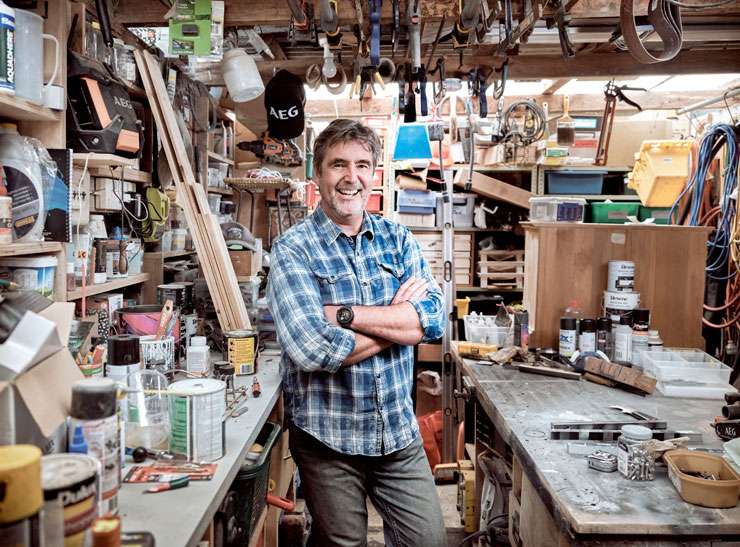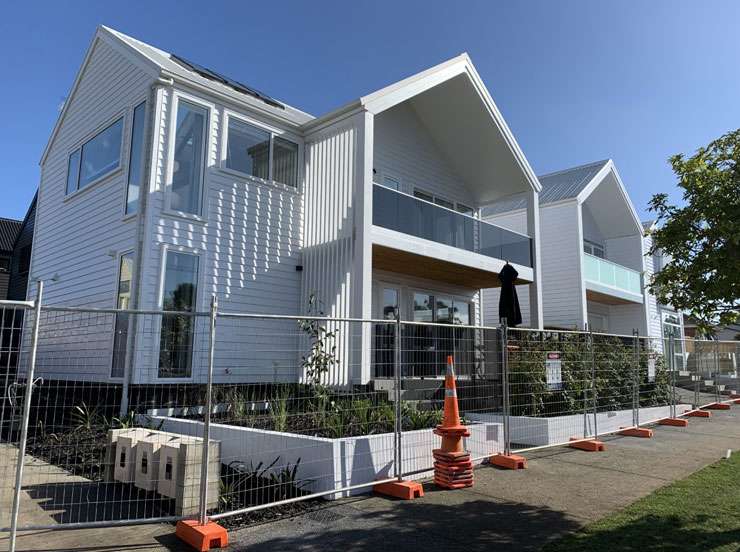This winter has been characterised by wild weather, affecting almost everywhere in the country at one time or another while ironically, we’ve just had the warmest July since records began.
Spring is now just a few weeks away but there’s no guarantee that weather patterns will suddenly switch to mild and dry. In southern areas September often sees frosts and although Auckland is still struggling with below average dam levels, another big dose of rain is always possible.
- READ MORE: See inside the Block NZ houses
Meanwhile, across the country there is a shortage of tradespeople available for building desperately needed new homes, or undertaking renovations that were planned by owners during last year’s lockdown.
Start your property search
Recent shipping issues mean that building supplies sourced from overseas are running low and costs have skyrocketed. This means that getting on with the job, as much as possible - regardless of the weather, is often essential to avoid spoiling or waste.
For various production-related reasons, work on the reality show The Block NZ generally takes place over winter when conditions can be far from ideal.
Peter Wolfkamp, site foreman for The Block and Newstalk ZB’s Resident Builder, says that’s because there is a perfect world and then there’s the world that we live in.

Block NZ foreman Peter Wolfkamp advocates shrink-wrapping a house to ensure it stays dry during the build. Photo / Ted Baghurst
“Ideally, you would start getting your build out of the ground in spring and continue over summer, with the aim of finishing up as winter approaches.”
He says that although it might seem costly, he emphatically recommends putting up scaffolding and shrink-wrapping the frame during construction because it means that the building programme isn’t weather-dependant and therefore subject to delays.
“Ultimately, it makes perfect sense.”
He says unusual meteorological events such as intense weather bombs and tornados are becoming more common in New Zealand and nobody should underestimate their strength, which can see large, solid items such as shipping containers tossed around like toys while small objects can still become deadly missiles.
“There are good practices when it comes to securing site materials such as timber, sheet materials, and bales of insulation,” says Wolfkamp
“If you know bad weather is on its way, then tie down plywood sheets and make sure that your fencing is well-braced.”

Construction on The Block NZ 2021 houses took place during winter in Auckland. Photo / OneRoof
Wolfkamp says that after strong winds in Auckland recently he noticed construction debris lying around a number of sites, posing a hazard to traffic.
“Polystyrene insulation, cardboard, and other items should be safely covered by tarpaulins and well-secured. Most of us chippies take our responsibilities seriously and will go and inspect our sites when bad weather comes, to make sure these problems are averted.”
Calvin Clapperton, of Auckland building company Samurai Builders, says the worst case he had seen of owners or tradespeople being unprepared for the ravages of winter was in a central city suburb where a partially built house was left to the elements.
“They ended up having to pull the whole lot down and start again, which must have been heart-breaking.”
Clapperton also recommends shrink-wrapping. “Sometimes it’s a bit of a hard sell to the owners but I’ve never come across anyone who regretted it in the end,” he says.
“There are seemingly small things that can delay construction; for example, council has to inspect the moisture content in the timber framing, using very high-tech equipment.
“If the house has been wrapped, you’ll have no worries, but if it isn’t, there’s every chance that you’ll have several months’ delay.”
He says that everybody working under the shrink wrap appreciates its benefits.
“I took a painter into one the other day and he couldn’t believe how perfect the conditions were for his part in the process. He said that it was going to make his job really easy.”









